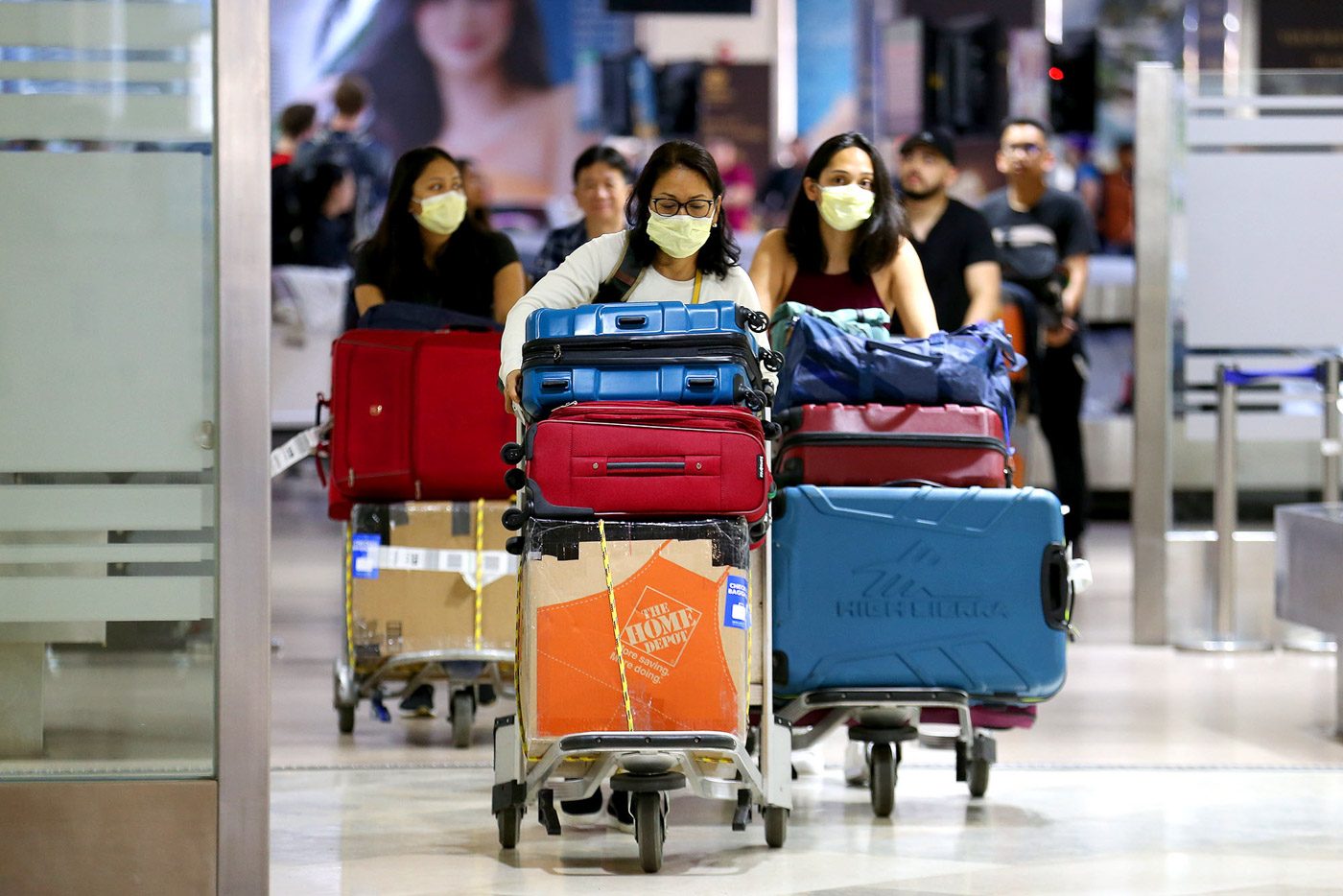SUMMARY
This is AI generated summarization, which may have errors. For context, always refer to the full article.

MANILA, Philippines – The novel coronavirus has left the world uncertain on all fronts. As the number of people found positive for the virus continues to rise, cities are shutting down, festivals are getting canceled, events are being postponed, and many are left wondering if they could and should still take that trip they’ve been planning out for months.
So should you?
The World Health Organization (WHO) didn’t outright recommend canceling travel plans unless you’re sick, elderly, or have underlying health conditions. But perhaps it’s best to reconsider trips at least to areas where cases of COVID-19 – the disease caused by the novel coronavirus – are rampant. (READ: Novel coronavirus outbreak: Where Filipinos can and can’t travel)
Aside from risking exposure to the virus when you travel to these areas, you could also be barred from entering other countries or subjected to a quarantine upon returning home or arriving to your next destination – meaning you won’t be able to move around freely anyway.
At the moment, those with recent travel history to China, Hong Kong, South Korea, Italy, and Iran are either being restricted entry to certain countries, or, if they are allowed entry, required to stay in quarantine for 14 days.
Before booking your trip, it’s best to learn about the COVID-19 situation in your destination, and learn about the risks of traveling there. Also, double-check if your destination is restricting entry to travelers from certain countries – this information is typically available on the immigration or tourism websites of the country or area you’re traveling to.
If you do decide to push through with your trip, here are some tips to keep yourself from getting infected:
Book a window seat and limit your movements throughout the plane
Health officials say that avoiding close contact with other people is one way to make sure you’re protecting yourself from getting infected with the novel coronavirus – but when you’re in a cramped, enclosed space like an airplane, you can’t help but be in contact with others, however short.
According to an article on National Geographic, a group of researchers found that those who stay in window seats move about less, and have the least encounters with other people on a flight. The same article noted, however, that even those in aisle and middle seats have “a fairly low probability of getting infected” because people have relatively short contact on airplanes.
They also said that illnesses are likely to be passed on only to within one row of an infected person.
Of course, if it’s a cabin crew member that’s sick, the likelihood of catching an infection goes up, because flight attendants handle food and communicate with others.
Make sure to pack all the hygiene essentials
Because you’re going to be heading to an unfamiliar place, you don’t know when you’re going to have access to things like alcohol, hand sanitizer, hand soap, and tissues that you’ll need to practice the coronavirus prevention tips recommended by health officials. Make sure you have enough of these in supply when you’re traveling, and that they’re within easy access at all times.
Keep good hand hygiene
This should be second nature to everyone by now but it bears repeating – the WHO recommends performing frequent hand hygiene “particularly after contact with respiratory secretions.” For travellers who may not always have access to soap and running water, having an alcohol-based hand sanitizer at all times is key – but if hands are visibly dirty, soap and water is still best.
Practice good coughing etiquette
Again, it should be second nature to everyone by now, but make sure to sneeze or cough into your elbow or a paper tissue. Also remember to dispose of the tissue immediately when you do, and clean your hands afterwards.
Also, avoid touching your mouth and nose.
Do masks work?
According to the World Health Organization, masks help prevent you from transmitting the virus if you’re infected, but it isn’t required if you don’t have symptoms because “there is no evidence that wearing a mask – of any type – protects non-sick persons.”
If you do wear a mask, make sure it covers your mouth and nose. When removing the mask, do not touch the front, but instead remove it from behind. After removing, dispose of the mask immediately – and wash your hands or use sanitizer afterwards. Do not reuse single-use masks – and do not use cloth masks.

Disinfect surfaces
The United States’ Centers for Disease Control and Prevention (CDC) recommends wiping down frequently touched objects “using a regular household cleaning spray or wipe.” On a plane, this might mean wiping down tray tables and arm rests with a disinfectant wipe before touching them.
Watch for symptoms after your trip
The WHO recommends that travelers returning from affected areas – meaning anywhere that has reported cases – should monitor themselves for symptoms for 14 days, and follow the protocol of the countries you’re entering – again, this may mean being subject to quarantine for two weeks after arrival.
If you notice any symptoms – including fever, cough, or difficulty breathing, contact local health care providers ASAP. – Rappler.com
Add a comment
How does this make you feel?
There are no comments yet. Add your comment to start the conversation.